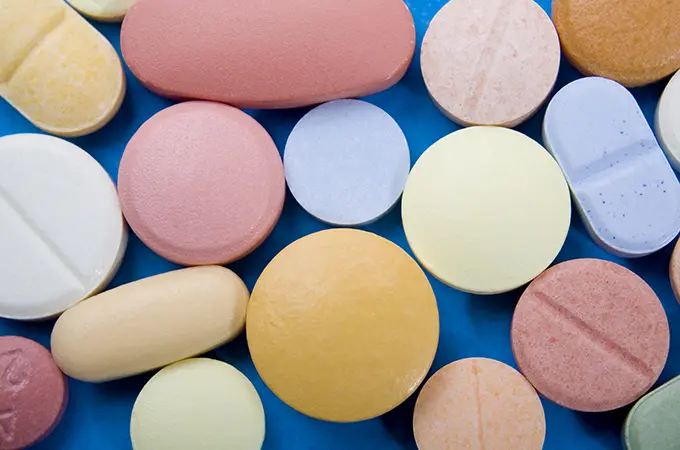Planning for pregnancy or navigating your fertility journey? The right nutrition can make all the difference. Vitamins and minerals play a key role in balancing hormones, improving egg quality, and supporting your baby’s healthy development from the very start. While a well-rounded diet is the best way to get these essential nutrients, knowing which ones to focus on can help you optimize your fertility and prepare your body for a healthy pregnancy. Let’s explore the most important vitamins and minerals, their benefits, and how to incorporate them into your daily routine.
12 key vitamins and minerals for fertility and pregnancy
- Calcium (1,000 mg daily)
- Supports strong bones and teeth for both mother and baby.
- Best sources: Milk, cheese, yogurt, sardines, dark leafy greens, almonds, and almond milk.
- Iron (18 mg preconception, 27 mg during pregnancy)
- Crucial for hormone regulation, ovulation, and oxygen transport to the fetus.
- Best sources: Lean red meat, poultry, fish, dried beans, iron-fortified cereals, and prune juice.
- Iodine (220 mcg daily)
- Essential for thyroid function and brain development in the baby.
- Best sources: Iodized salt, dairy products, seafood, eggs, and seaweed.
- Choline (450 mg daily)
- Aids brain and spinal cord development in the fetus.
- Best sources: Egg yolks, milk, beef liver, peanuts, and soy products.
- Vitamin A (770 mcg daily)
- Enhances egg quality, supports vision, skin health, and bone growth.
- Best sources: Cooked carrots, leafy greens, sweet potatoes, beef liver, eggs, and tuna.
- Vitamin C (85 mg daily)
- Enhances iron absorption and promotes healthy gums, teeth, and bones.
- Best sources: Citrus fruits, broccoli, tomatoes, and strawberries.
- Vitamin D (1,000 – 2,000 IU daily)
- Aids ovarian follicular development, blood sugar regulation, and fetal bone health.
- Best sources: Sunlight, fortified milk, and fatty fish like salmon and sardines.
- Vitamin B6 (1.9 mg daily)
- Helps with protein and carbohydrate metabolism, red blood cell formation, and nausea relief.
- Best sources: Beef, liver, pork, whole grains, and bananas.
- Vitamin B12 (2.6 mcg daily)
- Supports energy levels, red blood cell formation, and nervous system function.
- Best sources: Meat, fish, poultry, dairy products (vegetarians may need a supplement).
- Folic Acid (600 mcg daily)
- Critical for preventing birth defects of the brain and spine.
- Best sources: Leafy greens, beans, lentils, oranges, asparagus, avocado, and Brussels sprouts.
- DHA (Omega-3) (300 – 1,000 mg daily)
- Reduces inflammation, supports egg quality, and promotes brain and eye development in babies.
- Best sources: Salmon, herring, sardines, trout, and DHA-fortified eggs and dairy.
- Magnesium (200 – 400 mg daily)
- Helps balance fertility hormones, supports ovulation, sleep, and muscle relaxation.
- Best sources: Spinach, beans, avocado, cashews, almonds, peanuts, bananas, and brown rice.
Additional supplements for fertility
Some supplements, like DHEA and Alpha Lipoic Acid, have shown potential benefits but require further research.
- Inositol: Supports ovarian function, cycle regulation, and insulin sensitivity (recommended for PCOS patients).
- CoQ10: Aids in egg and sperm quality, especially for those with diminished ovarian reserve (DOR).
- N-Acetyl-Cysteine (NAC): Helps reduce oxidative stress and inflammation, particularly for those with PCOS and endometriosis.
- Alpha Lipoic Acid (ALA): Supports insulin sensitivity and sperm quality, though data on female fertility is limited.
- DHEA: May improve antral follicle count in women with low ovarian reserve but lacks conclusive evidence on pregnancy outcomes.
Choosing the right prenatal vitamin
While a balanced diet is the best way to obtain essential nutrients, a high-quality prenatal vitamin ensures you meet your daily requirements. Look for a prenatal supplement that includes iron, choline, DHA, and calcium, as many standard formulations may fall short.
Recommended brands:
- Luminary Vitamins (gummies, vegan, gluten-free)
- Theralogix
- One a Day Prenatal Advanced with Choline
- Nature Made Prenatal with DHA
- Zahler (kosher, gluten-free)
The journey to parenthood begins with a strong foundation, and proper nutrition is one of the most powerful tools at your disposal. By prioritizing a diet rich in essential vitamins and minerals—and supplementing wisely—you can support your fertility, promote a healthy pregnancy, and set your baby up for the best possible start in life. Remember, every individual’s needs are unique, so before making any changes to your supplement routine, consult with your doctor or fertility specialist to ensure you’re giving your body exactly what it needs.
Medical contribution by Lauren Roth, M.D.
Lauren Roth, M.D., is the Medical Director of SGF, and board certified in obstetrics and gynecology and reproductive endocrinology and infertility. She has published research on a range of fertility topics including polycystic ovary syndrome (PCOS) and the impact of weight on reproductive hormones. Dr. Roth sees patients in SGF’s Rockville, Maryland office.





